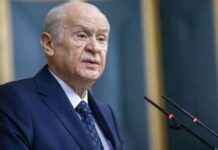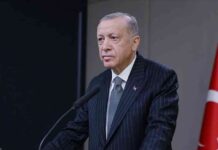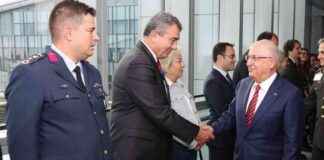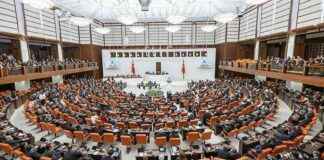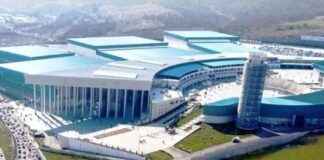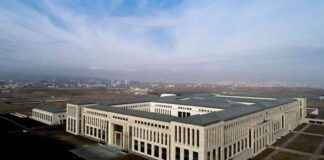A senior official from Saudi Arabia stated that the oil-rich Middle Eastern country is open to diversifying its economy while incorporating Chinese products like electric vehicles (EVs), the C919 passenger aircraft, and renewable energy infrastructure into its economy, including the use of the yuan in the country’s crude oil deals.
According to a report from the South China Morning Post, Saudi Arabia’s Minister of Industry and Mineral Resources, Bandar Al-Khorayef, said in an interview in Hong Kong on Saturday, “The Petroyuan is not important for [the ministry], we believe that Saudi Arabia will do what is most beneficial to its own interests… but we always think that Saudi Arabia will try new things and be open to new ideas, and we try not to mix politics with trade.”
The wider adoption of the Petroyuan, which is seen as a challenge to the US dollar, the global reserve currency, is considered the next step for the internationalization of the yuan and a challenge to the US dollar that has always been present in global commodity markets.
The use of the currency has increased following Moscow’s exclusion from the US dollar system after its intervention in Ukraine in February 2022, in addition to trade with Russia, which is China’s largest source of crude oil imports.
Beijing is also advancing the international use of the yuan in trade further. In November 2023, China signed a three-year currency swap agreement worth 50 billion yuan (USD 7.1 billion) with Saudi Arabia and showed a preference for payment in local currency with its trading partners.
While Khorayef expressed a positive sentiment towards the use of the Petroyuan in transactions in Saudi Arabia, he did not provide a timeline for when this might happen.
From an economic perspective, Khorayef believes that such an arrangement could be made between a supplier and a customer with the freedom they possess. He stated, “I think such an arrangement can be made between a supplier and a customer based on the freedom they have. This is not something we will look at from a policy perspective.”
Saudi Arabia is the second-largest source of crude oil imports for China. Purchases declined by 1.8% to 86 million tons in 2023, significantly below Russia’s purchases of 107 million tons.
In a report published by S&P Global Ratings in August, it was stated that deepening economic relations between China and Saudi Arabia would increase the use of the yuan in oil purchases, but making these transactions profitable would take time.
As Riyadh aims to diversify its economy and become an industrial hub in the Middle East under the Vision 2030 initiative, Chinese companies are willing to explore alternative markets as the scope of US-led containment efforts expands. These developments have led to closer relations between the two countries.
Khorayef became the latest senior Saudi official to visit China, including Hong Kong as the last stop on a week-long Asian tour that also included Singapore and Guangzhou.
Chinese Foreign Ministry Spokesperson Mao Ning announced on Monday that Prime Minister Li Qiang would head to Saudi Arabia to chair the fourth meeting of the High-Level China-Saudi Joint Committee and will also visit the United Arab Emirates from September 10-13, along with this country.
The minister said he expects further cooperation in many areas, especially in the form of Chinese investment, including metal, pharmaceuticals, smart cities, robotics, and renewable energy.
Regarding aviation, Khorayef said that while Saudi Arabia is looking for high-value applications for its developed aluminum, Chinese suppliers, among others, are also in talks with many aviation suppliers.
The General Authority of Civil Aviation, the industry regulator in Saudi Arabia, signed a memorandum of understanding with the Commercial Aircraft Corporation of China (Comac) in May to localize the aviation industry and develop the local supply chain.
“Saudi Arabia will be an aircraft buyer for the next 25 years. Considering the growth we see, they will definitely look at more than one supplier,” he said.
Additionally, the Gulf country is trying to expand its mining sector by creating a discovery incentive program worth USD 182 million in January to leverage its vast phosphate, gold, copper, and bauxite reserves.
Khorayef stated, “Saudi Arabia wants to turn its natural resources in minerals into high-value products.”
“We are also working on titanium and have expanded our titanium production. This is a project with very few players and a high global demand, so we believe Saudi Arabia can make a significant contribution to these critical sectors,” he added.



